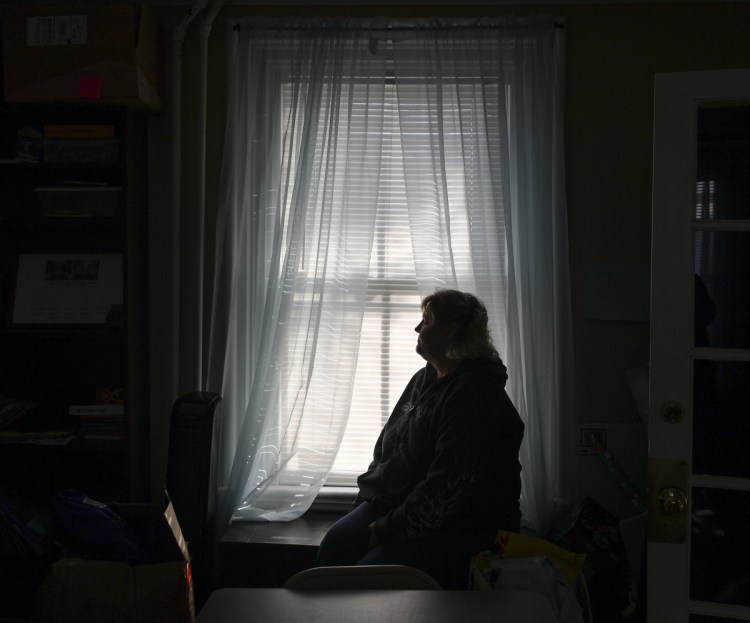MARTINSBURG, W.Va. — Weeks after fleeing an abusive relationship, a 49-year-old woman was ready to move out of a shelter and into a trailer with a security deposit provided by a nonprofit organization that relies on federal funding. But the government shutdown scuttled her plans to start a new life.
The Eastern Panhandle Empowerment Center this month cut all extra spending and client expenses to prepare for the Justice Department freezing its regular stream of federal grant money. The center’s ability to help domestic violence victims pay for prescriptions was gone, and home visits to people in rural areas had to be canceled. There could be no more free rides for women to get to new jobs, leading to one woman’s firing.
The shutdown belt-tightening also meant that the woman who escaped here from Baltimore would no longer get help with her trailer’s security deposit, so she continues to take a spot at the shelter while more than two dozen women seeking refuge from potentially dangerous situations sit on a waiting list.
“It hurts more than anything,” said the woman, who spoke on the condition of anonymity because she fears the partner who abused her.
The government shutdown has led organizations that help victims of domestic violence and sexual abuse to cut back on lifesaving services, furlough staff and turn people away from shelters. Many groups are heavily reliant on federal funding that was scheduled to stop being allocated on Jan. 18 amid the nearly month-long partial government shutdown.
Advocates said the Justice Department decided hours before the deadline to extend the money until March 1, a temporary reprieve that allows them to restore services and keep staff employed.
Already having come to the brink once during the political stalemate, such organizations across the country are still in flux, fretting that the patchwork solution might not outlast the shutdown. They are trying to save as much money as possible while refining staff furlough plans and talking to victims for the first time about operating budgets.
“The upside is providers have a little more time to continue to operate and delay implementation of difficult strategies,” said Gloria Aguilera Terry, chief executive officer of the Texas Council on Family Violence. The downside, she said, is it “only abates anxiety for another 42 days. That is no way to operate. That is no way to responsibly serve vulnerable people.”
What the shelters experienced in recent days is symbolic of the broader shutdown: uncertainty, fear, contingency planning and an 11th hour reprieve, at least tentatively. But while many Americans have not yet experienced a direct impact as a result of the government shutdown, at domestic violence shelters any interruption of funding could cut off services that keep women victims and their children safe from potentially fatal violence. Experts say that shelters can provide escape at perilous moments; having to turn people away can be a matter of life and death.
Send questions/comments to the editors.



Success. Please wait for the page to reload. If the page does not reload within 5 seconds, please refresh the page.
Enter your email and password to access comments.
Hi, to comment on stories you must . This profile is in addition to your subscription and website login.
Already have a commenting profile? .
Invalid username/password.
Please check your email to confirm and complete your registration.
Only subscribers are eligible to post comments. Please subscribe or login first for digital access. Here’s why.
Use the form below to reset your password. When you've submitted your account email, we will send an email with a reset code.